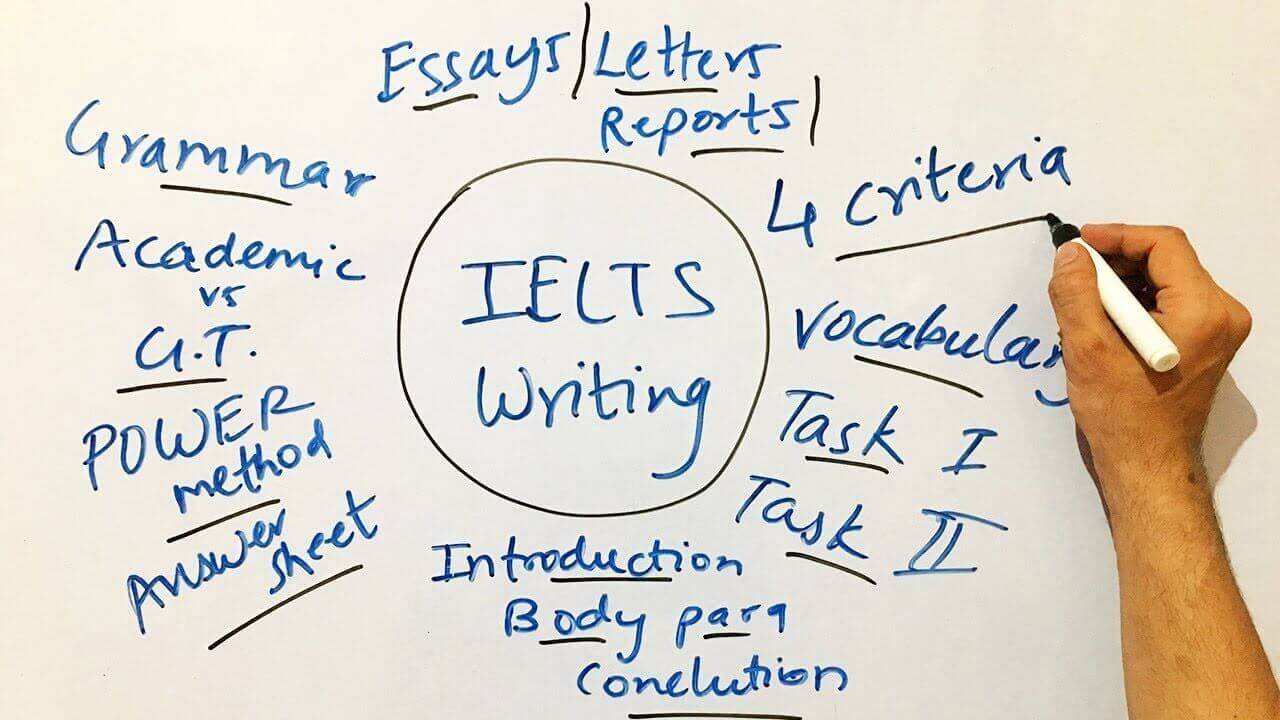Intro to the IELTS Writing Paper
Intro to the IELTS Writing Paper Like the rest of the exam, the IELTS academic writing paper takes some the skills and competencies required for...
Flexible group courses for everyday communication and fluency.
Academic EnglishPrepare for university study with advanced academic language skills.
Business EnglishEnglish for professional communication in corporate and workplace settings.
Private LessonsOne-to-one lessons tailored to your goals, schedule and interests.
Language ExcursionsLearn English while exploring Cape Town with your teacher as your guide.
Get the score you need with targeted strategies and expert support.
Cambridge ExamsPrepare for the FCE or CAE with structured, high-quality training.
TOEFL PreparationBuild confidence and test skills to succeed in the TOEFL exam.
Personalised one-to-one English lessons delivered online, on your schedule.
Corporate GroupsLive online training for teams, customised to your organisation’s needs.
English for Tech ProfessionalsSelf-paced English course designed for developers, engineers, and IT teams.
Qualify to teach English in South Africa or abroad with this practical course.
Blended Certificate in TEFLCombine online study with hands-on classroom experience in Cape Town.
Learn in a historic university campus right in the city centre.
Tours and ActivitiesExplore Cape Town and make friends through weekly excursions.
Social ProgrammeJoin our schedule of fun events, outings and conversations.
Getting AroundTips and tools for navigating the city like a local.
Social and DigitalStay connected online and through our vibrant student community.
A friendly, sociable student house just a short walk from school.
Adderley StudiosModern, secure apartments in the heart of Cape Town.
HomestayLive with a local family and experience South African culture.
Hotels & AparthotelsIndependent options for comfort, privacy and flexibility.
All tuition and accommodation fees in one clear table.
Booking InformationWhat to expect before, during and after you book.
Instalment PlansFlexible payment options for long-term bookings.
User LoginView your bookings, make payments, and manage your details.
Visa options and support for international students coming to South Africa.
Insurance & TravelWhat you need to know about travel, insurance and staying safe.
MyELC AppAccess your timetable, progress and more on the student app.
Arrival and OrientationHow we help you settle in on your first day in Cape Town.
How to request certificates, transcripts, or proof of enrolment.
Terms & ConditionsThe small print — bookings, cancellations, and more.
Contact UsGet in touch with the ELC team by email, phone or WhatsApp.
Privacy PolicyHow we protect your data and respect your privacy.
What makes ELC and UCT a great place to learn English.
About the University of Cape TownSouth Africa’s leading university and home to the ELC.
About the English Language CentreWho we are, what we offer, and how we teach.
Our TeamMeet the teachers, support staff and leadership team behind ELC.
Our international quality standards and endorsements.
Media & PressNews coverage, interviews and media mentions of ELC.
TestimonialsWhat our students, partners and teachers say about us.
BlogUpdates, stories and insights from the ELC community.
Flexible group courses for everyday communication and fluency.
Prepare for university study with advanced academic language skills.
English for professional communication in corporate and workplace settings.
One-to-one lessons tailored to your goals, schedule and interests.
Learn English while exploring Cape Town with your teacher as your guide.
Get the score you need with targeted strategies and expert support.
Prepare for the FCE or CAE with structured, high-quality training.
Build confidence and test skills to succeed in the TOEFL exam.
Personalised one-to-one English lessons delivered online, on your schedule.
Live online training for teams, customised to your organisation’s needs.
English for Tech Professionals
Self-paced English course designed for developers, engineers, and IT teams.
Qualify to teach English in South Africa or abroad with this practical course.
Combine online study with hands-on classroom experience in Cape Town.
Learn in a historic university campus right in the city centre.
Explore Cape Town and make friends through weekly excursions.
Join our schedule of fun events, outings and conversations.
Tips and tools for navigating the city like a local.
Stay connected online and through our vibrant student community.
A friendly, sociable student house just a short walk from school.
Modern, secure apartments in the heart of Cape Town.
Live with a local family and experience South African culture.
Independent options for comfort, privacy and flexibility.
Use our Course Wizard to match your goals and level to the best option
Course WizardAll tuition and accommodation fees in one clear table.
What to expect before, during and after you book.
Flexible payment options for long-term bookings.
View your bookings, make payments, and manage your details.
Visa options and support for international students coming to South Africa.
What you need to know about travel, insurance and staying safe.
Access your timetable, progress and more on the student app.
How we help you settle in on your first day in Cape Town.
How to request certificates, transcripts, or proof of enrolment.
The small print — bookings, cancellations, and more.
Get in touch with the ELC team by email, phone or WhatsApp.
How we protect your data and respect your privacy.
What makes ELC and UCT a great place to learn English.
About the University of Cape Town
South Africa’s leading university and home to the ELC.
About the English Language Centre
Who we are, what we offer, and how we teach.
Meet the teachers, support staff and leadership team behind ELC.
Our international quality standards and endorsements.
News coverage, interviews and media mentions of ELC.
What our students, partners and teachers say about us.
Updates, stories and insights from the ELC community.

The IELTS listening paper is split into four sections, with each section progressively more difficulty than the last. Sections one and two are set in an everyday context that a visitor to an English-speaking country might encounter, and sections three and four are set in an academic context. There are 40 questions and the test itself takes 30 minutes. You write your answers directly on the question paper and at the end you have ten minutes to transfer your answer to an answer sheet. You will have to answer a variety of question types, including short answers, multiple choice, labelling a diagram, completing a table or summary, and sentence completion.
There are a few general things to bear in mind with IELTS listening paper.
Section one is a dialogue between two people, on the phone or face to face, and is always transactional. That means that the speakers are asking for and providing information. The setting is the kind of situation you might experience when you first move to a new place, like opening a bank account, renting a flat, joining a gym, etc. Some of the information is usually personal details, like the person’s name, address, phone number and date of birth. To answer the questions, you’ll need to anticipate what kind of information is being asked for by reading the questions, then listen and write down that information on your question paper.
Section one is definitely the easiest section of the listening paper, and you should aim to get all of the questions correct in order to get a good overall mark on this part of the IELTS exam.
This section is a monologue (one person talking) in an everyday or social context. It might be an extract from a radio programme, someone giving a speech or a talk on a topic of general interest, or a recorded guide to a museum or tourist exhibition. Occasionally you there may be a second person interjecting or asking a question, but the most of information is going to be provided by the main speaker.
Section two will be slightly more difficult than section one. Rather than just recording information that you hear in a transactional format, you will need to read the question paper to decide which of the information you hear is relevant to answering the questions. To do this you will identify key words or signpost words in the questions which tell you that the answer is about to come up on the recording. You’ll also use the question paper to navigate the text, giving you clues on what the speaker is going to talk about on the recording. For an overall score of 6.5 or above, you still need to aim high in this section, getting seven or eight out of the ten questions correct.
Section three is a conversation between three or four speakers and is set in an academic context. Common settings are a group of classmates talking about an assignment together, or students discussing course material with their tutor. The content of the recording itself is not highly academic, but the language and the nature of the task is intended to what you would find in day to day interactions as a university student.
The sections of the test get progressively more difficult, and this means that section three is more challenging than the previous sections. The language used in the recording will be more complex and academic, and there will be more information to process. When listening for keywords, you’ll have to bear in mind that the speakers will use synonyms and parallel phrases rather than the exact words you see in the question. You should be aiming for at least six out of ten in this section.
The final section is a monologue in an academic context, such as a university lecture. Although you should not need any prior specialist knowledge to understand the recording, the language will be very advanced, and the topic may be quite technical and complex. Unlike the other sections, the recording is not split into two parts, so you will need to follow it closely, using the question paper as a guide, and maintain your concentration throughout.
Section four is tough, and many students get lost or fail to keep track of the recording and end up not answering most of the questions. Although there are exam tips and strategies that can help you, ultimately you need to have excellent listening skills and an advanced knowledge of vocabulary to do well in this section. You will need lots of practice in listening to long, authentic texts in English and to train yourself to listen in a sustained and active manner. Even for an advanced student, anything more than five out of ten is a good score in this section.
Follow our blog for specific tips and strategies on the IELTS listening and other papers.

Intro to the IELTS Writing Paper Like the rest of the exam, the IELTS academic writing paper takes some the skills and competencies required for...

Strategies for the IELTS Speaking Test The speaking test is an opportunity to shine. This article looks at Part 1, Part 2 and Part 3 of the IELTS...

IELTS pre-reading strategies As we have previously mentioned it is IMPOSSIBLE to read ALL three texts in the IELTS reading exam. So, what can you...